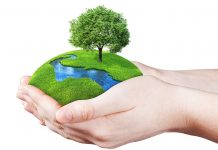“This article is written by Jasmine Madaan, from Vivekananda Institute of Professional Studies (VIPS). This is an article which describes the effect on the economy and environment of plastic ban laws.”
Table of Contents
Introduction
300 million tonnes of plastic is produced every year, a number equal to the weight of entire human species on this planet. Worldwide, 5 trillion single-use plastic is used every year, 1 million plastic water bottles are bought every minute. The ubiquitous figures depict the horrifying situation of the earth. Various steps are being taken to curb the deterioration of the planet by banning the use of plastic on the national and international level. The article deals with various such laws and its effect on the economy and preservation of the environment.
Plastic Ban
International
Countries all around the world have shown concerns about the increasing usage of plastic. Some countries have brought into force various laws or rules related to plastic bans either on a national level or state level, whereas, some are yet to take major steps to diminish plastic usage. There is a quick brief of steps taken by a few countries towards bringing the change:
France
It has two national policies against plastic pollution. In 2016, the Energy Transition for Green Growth Law banned the single-use plastic cups, glasses and plates except those which are used for packaging purposes. Later in 2018 the Eaglim Law, also called ‘Law for balanced commercial relations in the agricultural and food sector; and healthy and sustainable food’ modified the 2015’s law by adding more items to it like straws, ice cream pots, cocktail mixers, etc.
A decree was passed on 24 December 2019 to lay down practical details of plastic bans, as per which the ban was to come into effect from January 1, 2020. France aims to cut the usage of plastic bags by half by 2025 in the country.

Sweden
It has a ‘No Plastic Ban, instead More Plastic Recycling’. The main reason behind no plastic ban policy is that Sweden has the World’s best recycling system. Only 1% of Sweden’s waste goes to landfills as it has a highly efficient and effective recycling system. Trash is sent to its system where it is burnt in incinerators. Recent talks have been to ban plastic cups in Sweden.
Kenya
It has the world’s harshest plastic bag ban laws. From 2017 (Gazette Notice No.2334 & 2356) if anyone is found using, selling, or producing plastic bags in Kenya shall be jailed for a maximum term of four years, or a fine of $38,000. Earlier attempts to ban plastic bags failed because they focused on bags of a particular thickness rather than all of them.
United Kingdom
The UK announced in 2018 the plan to “set the global gold standard” in 25 years by eliminating plastic waste. It has banned the plastic microbeads which were used in cosmetics and personal care products. However, it can be used in makeup products and sunscreens. It has also brought a rule of imposing a tax on plastic bags in 2015 due to which a fall of 9 billion plastic bags was The UK has banned plastic stirrers, straws and cotton buds which is to come into effect in April 2020.
China
China brought a State Council decree in 2008 that aimed at curbing the growing plastic woes. It was made illegal for stores to give out plastic bags for free, the law made it legal for the sellers to charge money from the consumers for the same and keep any profit for themselves. A drastic drop of 50% was observed in the usage of plastic bags and that is how China managed to keep 100 billion plastic bags out of the landfills.
India
India has had a national ban on plastic bags since 2016. The Environment (Protection) Act 1986, provides the Central government with the right to take necessary measures to protect the environment. The government can make rules to prevent, control and abate environmental pollution, some of which to control plastic pollution are:
Plastic Waste (Management & Handling) Rules, 2011
Plastic Waste Management Rules, 2016
Plastic Waste Management (Amendment) Rules, 2018
The final law based on the three above mentioned rules, in India one is not allowed to use plastic bags as thin as 50 microns as they are non-disposable and pose a major threat to the environment. It poses responsibility upon brand owners, producers, importers, waste generators and waste pickers.
Other rules like Hazardous and Other Wastes (Management and Transboundary Movement) Rules, 2016, Recycled Plastics Manufacture and Usage Rules, 1999, etc. provide various rules regarding the management, usage, etc. of plastics. Various states have already banned single-use plastics like Sikkim.
On the 150th birth anniversary of Mahatma Gandhi, the Prime minister of India, Mr Narendra Modi announced the plans to phase out six major single-use plastic items and move towards a single-use and plastic-free India.
This website provides more information about the countries that have been taking steps against plastic pollution: https://www.unenvironment.org/interactive/beat-plastic-pollution/
International Treaties
The United Nations Framework Convention on Climate has recently launched a Global Campaign named #BeatPlasticPollution. It has been motivating people to participate in the campaign via various social media platforms. One has to make a video demonstrating the single-use plastic item they are giving up and also to tag 3 other people. The aim of the campaign is to motivate as many people around the globe take a pledge of giving up plastic usage habits and move towards a greener world and reduce greenhouse gas emissions.
The Paris Agreement has been ratified by 189 countries. The main objective of the Paris Agreement is to limit the “average global temperature rise to well below 2 degrees Celsius above pre-industrial levels and as close as possible to 1.5 degrees celsius”. It marked history by being the first universally binding agreement which also took note of the increasing pollution in oceans and lack of management. After every five years, all countries have to publicly declare their plan of action.
In the third session in 2017 of the United Nations Environmental Assembly (UNEA), countries agreed to pass a resolution relating to marine litter and microplastics. The work is under process to form a binding treaty in order to address the rising crisis of plastic pollution at a global level.
In 2019, at the meeting of the United Nations Environment Program in Geneva, 170 countries agreed to a deal which would help in a sharp reduction in the amount of plastic that is washed to the shores of the world’s oceans. The deal was to include plastics in the category of hazardous waste as per the 1989 Basel Convention.
Economic Situation
The take on the impact of banning plastic on the economy has been highly controversial. Banning plastic is the need of the hour but one first needs to look at its repercussions on the economic situation of the countries. According to the All India Plastic Manufacturers’ Association (AIPMA), the plastics processing industry of India has around 30,000 units and Rs. 2.25 lakh crore annual turnover. The industry also provides employment to over 4 million people. Out of the 30,000 units, 85-90 per cent constitute small and medium-sized enterprises (SMEs). A drastic impact on trade will be seen in case of a ban.
Any step to be taken by the government should be a weighed one in terms of its impact on closures of plants and job losses that would lead to a rise in unemployment level at a time of economic downturn. A major decline in retail employment will occur.
Difficulty in Branding– One major fact which is often ignored is that the printing cost on plastic is very less than the cost required to print a company name, business logo and other information on a paper or cloth bag.
Product pricing– Purchasing plastic bags in bulk helps businesses to cut costs and increase their profit margins as a plastic bag costs around 10-15 paise which is cheaper as compared to a paper bag which costs 20-25 paise. Shifting to non-plastic alternatives thus increases the cost for producers, sellers as well as the customers. This also has a negative impact on the purchasing power of the customer which ultimately leads to a decrease in demand. A plastic ban law increases the price of goods and services, reduces the profit of manufacturers and thus there is a decrease in economic activity in the area where a ban is imposed.
At a time like this when not just India but the entire world is highly affected in terms of its economic situation, the ban of plastics will certainly just add to the burden if it is implemented without any backup plan.
Oil, natural gas and coal are used to make material like plastic. As per FICCI, one-third of India’s plastic consumption goes into packaging. The energy and resources used to produce it go in vain after a single-use. As estimated that annual losses of $80-120 billion are caused to the world economy. The natural capital cost as estimated by the United Nations is around $75 billion annually. A sudden ban on plastic use will drastically affect the economy. The conference that took place in Paris in 2016 on curbing global warming also discussed the promotion of the ‘circular economy’ of waste disposal.
Countries that have a high contribution of tourism to their GDP produce a high amount of plastics especially from styrofoam products (a product that can be recycled at the centralized plant because of which it has to be transported). An economic impact of $1.3 billion of marine products was measured by the Asia-Pacific Economic Cooperation (APEC) to tourism, fishing and shipping.
There is a negative effect on business sales and profits from plastic bans. It provides an unfair advantage to the people operating in a geographical area where no plastic ban is imposed. The theft of shopping carts and baskets also increases when there is a plastic ban. People often try to avoid spending on a costlier object to carry shopping material. Another opinion about this is that the cost of plastic packaging which is included in the cost of the main product itself will be removed once the plastic is banned which might lower the cost of items and thus benefit the customer.
A high amount is spent on routine cleaning drives of water bodies, landfills, drains, etc. Therefore, considerable amounts of money that can be saved by reducing or banning plastic and that amount can be used for the betterment of the nation in other ways.
As per the industry experts, a ban on plastics will have a drastic effect on the GDP of states as well as the country. This will also lead to an increase in bank bad loans from the plastic sector. The ban imposed by the Maharashtra government in 2018 on use, distribution, storage and manufacturing of single-use plastic items shook the entire industry to the core. The heavy fines imposed were believed to cause disruption in the service to consumers.
Major economists try to highlight the need for reshaping the ‘economies of plastics’ i.e. to create an after-use plastic ecosystem which is cost-effective. It can be fulfilled by working on ‘recycling, reuse and controlled biodegradation’ of the plastic used by consumers and industries.
Environment
As highlighted earlier as well, plastics especially the single-use plastic items pose an enormous threat to the environment. The irony often seen is that we produce a product which is highly dangerous for the environment from the precious non-renewable resources of our planet like petroleum and natural gas. Ban on plastics can surely help in saving our non-renewable resources which if once lost might not be retrieved later.
The two major harmful effects of plastic usage are the carbon dioxide produced by it adding to the greenhouse effect and the other being the increasing collection of waste in the landfills and oceans. Banning plastics can help in reducing both the effects. As quoted earlier, China saw a decline of 50% in the usage of plastic bags after banning single-use plastic bags which helped China manage to keep 100 billion plastic bags out of the landfills.
Plastic pollution is found in air, water, land, and groundwater. Due to its extremely slow decomposition, the minute plastic pollutants stay dispensed in the medium which is either inhaled or injected into the bodies of living beings from animals to humans, via different modes. The plastic releases poisonous gases which lead to harmful effects ranging from drastic cancer to breathing issues. Banning plastics will reduce its consumption over time which will ultimately lead to better health of humans and wildlife.
Less supply will lead to less demand therefore if the single-use plastic items will not be produced then eventually people will move to other alternatives thereby adding their bit to protect the environment. Many countries and states have proved to be an effective example of banning plastics. Kenya is a good example.
But an alternative opinion about the same is that plastic bags are easier to produce than cloth bags. Reusing cloth bags can increase the cross-contamination of diseases and the waste management procedure might be overburdened. Some even argue that there are various other important topics that need to be catered to curb the carbon dioxide production which causes the greenhouse effect, which is a separate debate altogether.
As stated by the head of the United Nations Environment- the problem is not the plastic, ‘it is what we do with it’.
Conclusion
It is estimated by the researchers that if the situation persists to deteriorate at the same pace then the world will be producing waste of around 165 million tonnes by 2030, for which 66,000 hectares of land to make landfill would be required. Whether alternatives to plastic can be more beneficial or worsening, is a separate debate in itself.
There have been many instances which have proved that no human can save the world if nature or climate is disrupted either naturally or due to the acts of humans. The countries need to bring into force effective laws in order to curb the increasing plastic pollution and green-house effect. After all, it is better late than never but not even too late.
References
- https://bioplasticsnews.com/2019/12/28/summary-plastic-bans-france/
- https://www.globalcitizen.org/en/content/plastic-bans-around-the-world/
- https://swachhindia.ndtv.com/plastic-ban-india-can-learn-countries-6161/
- https://wedocs.unep.org/bitstream/handle/20.500.11822/25496/singleUsePlastic_sustainability.pdf
LawSikho has created a telegram group for exchanging legal knowledge, referrals and various opportunities. You can click on this link and join:
 Serato DJ Crack 2025Serato DJ PRO Crack
Serato DJ Crack 2025Serato DJ PRO Crack










 Allow notifications
Allow notifications


